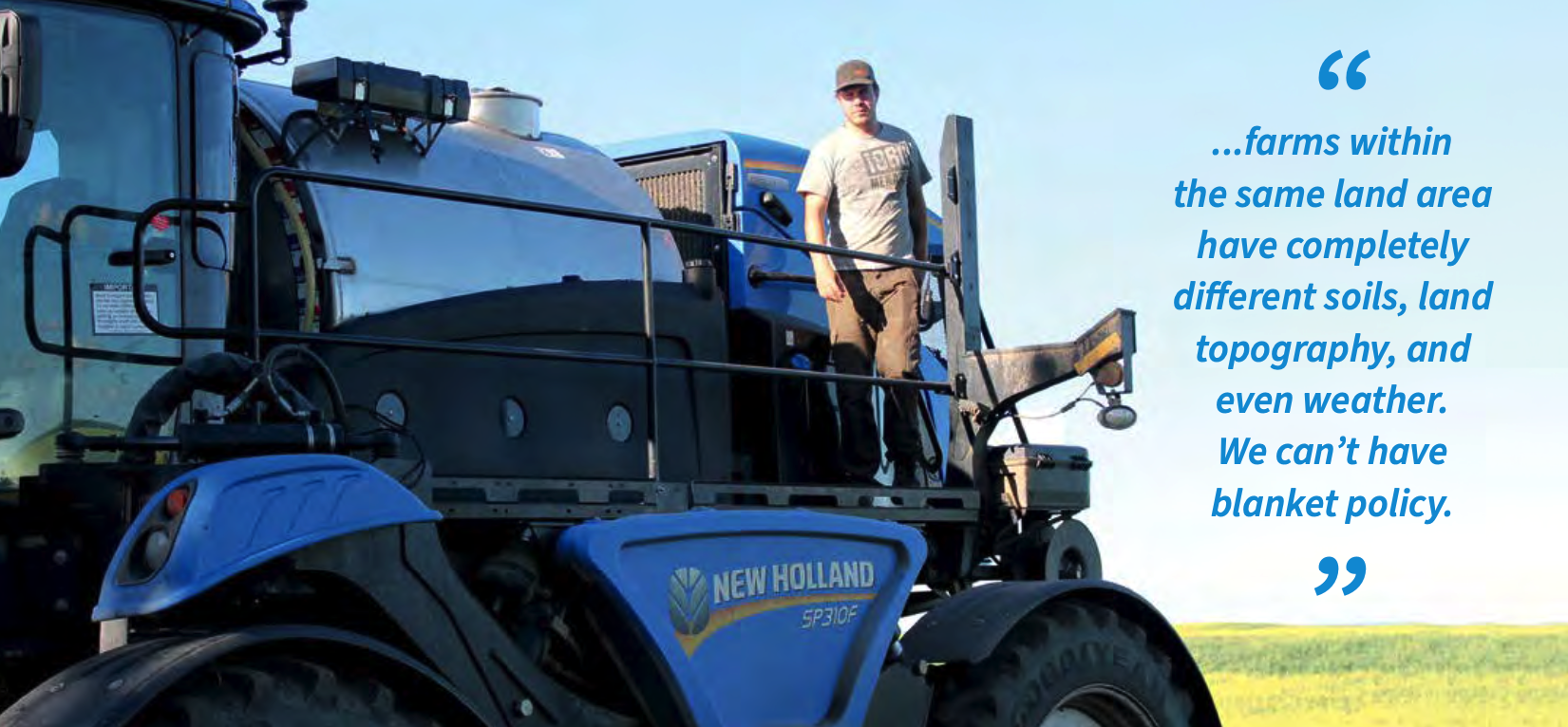BOARD MEMBER
Building on a family legacy of service in Canada’s agriculture sector
Matt McIntosh, farmer and writer
SERVICE AND COMMUNITY involvement have long been a feature of Robbie Misko’s family. Joining the Manitoba Pulse & Soybean Growers (MPSG) board in early 2023, Misko hopes to build on that legacy by supporting the organization in its government outreach and research efforts.
The Misko family – that’s Robbie, his parents, and two sisters – operate a pea, canola, and wheat farm in the province’s Parkland region. While Robbie’s sisters largely manage seeding and combining, he and his father, Robert, manage logistics, fertilizer and chemical inputs, and other tasks. Misko’s involvement with MPSG follows his father’s diverse and long- standing involvement with various institutions and organizations, including Manitoba Wheat and Barley Growers Association, Manitoba Crop Alliance, Cereals Canada, and local municipal governance.
“I joined the MPSG board at the second meeting of the year. It’s my first time sitting on a board for an agriculture organization. We do mostly peas, so I’m coming at it from that side of things. We’re hoping to see what research can be done in terms of yield or even chemical wise,” says Misko, reiterating the limited number of chemical treatments that can be used in pea production is a constant challenge. Regarding yield, he hopes the organization’s research efforts continue exploring how different varieties could increase production potential.
Misko currently sits on the board’s marketing and development committee and the research and communications committee. Despite only attending a handful of meetings as of November 2023, Misko says his board colleagues have been doing a good job staying on top of the many agronomic and farm policy issues.
“They try and push government policy to be better for farmers. We’re hoping to get government to realize that, with fertilizer and other inputs, every farm is different,” he says. “Our farm is a clay loam, and if you go five kilometres east, it’s more sandy loam, if not more sand then clay. You need a lot more rain in that area to produce the same crop. Even farms within the same land area have completely different soils, land topography, and even weather. We can’t have blanket policy.”
On the marketing side, Misko says 2023 appears to be similar to the previous year – that is, little substantial change in end markets for peas. As with oilseeds and buildup of crush capacity across the prairies for canola, however, he recognizes market development is often a longer-term game. He adds MPSG’s Scouting Network is an initiative of particular interest and highly valuable for growers trying to account for regional differences in soil, weather trends, and other factors.“You actually see in your area what that treatment does in your area, in this weather. It’s good information to have, so that down the road you can look up your area and make more informed decisions.”


